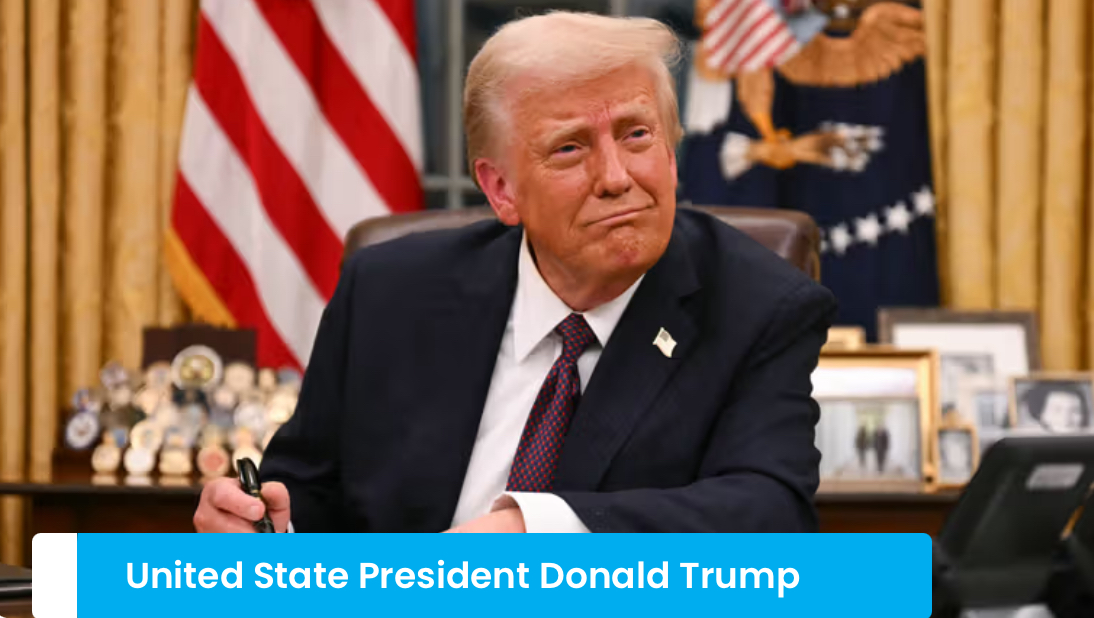SIR: Since the second term emergence of President Donald Trump in a landslide victory for a second term, the new United States administration is reworking the world order with a policy of achieving peace globally through strength. And since the presidential pronouncement on this policy thrust U.S. missions in various parts of the world have accelerated their diplomatic engagements with host countries towards achieving the Trump administration’s agenda.
Again “America First Policy” of the Trump’s administration is already reestablishing America’s preeminence in global affairs. Today, America is regaining lost prestige and respect among the global community. So far the Trump’s administration has restored peace in the Middle East by brokering a ceasefire between Israel and Iran after the 12-day war.
Similarly, the warring parties in Sudan have been brought to a negotiating table and an armistice negotiated at the behest of President Trump, which has led to a halt in the fratricidal war. The Sudanese war had raged since 2023 and remained intractable until recently. The truce can be ascribed to humanness of the U.S. President who showed empathy on the loss of human lives in the war.
Even in the protracted Russia war in Ukraine, President Trump’s administration has not relented in seeking for a restoration of peace. So with Trump in power the world is witnessing an American administration that does not seek to impose its will on the world but is focused towards ensuring that we all have a more peaceful and harmonious world.
Furthermore, at the recent attendance of President Trump at the NATO summit at The Hague, he was able to strike a defence deal with the NATO member-countries. This deal, which has followed decades-long calls by Trump for NATO allies to contribute to their shared security, and this clarion call yielded the desired result with the member-countries committing to contribute five per cent of their gross domestic product on defence. Definitely, this will bolster the strategic position of NATO in world affairs, as well as reduce the disproportionate level of responsibility of the United States for security in Europe.
In 2017 when President Trump first entered into office, only three NATO members were paying two per cent of their Gross Domestic Product on defence, but with more prodding from Trump, more European allies are now committed to their obligations to the body.
Narrowing it down to Nigeria-U.S. bilateral relations, it is important to recall that through the instrumentality of USAID and other agencies, the United States has been benevolent, and magnanimous in assisting Nigeria with several life-saving aids and funds. These interventions have no doubt impacted positively on many Nigerian families over the years.
It can be stated without equivocation that the United States has played a pivotal role in the development of Nigeria, and the tenure of Mr Richard M. Mills as the Ambassador is unfolding as the hallmark of diplomacy.
The bottom-line is that both countries are focused on accentuating the policy of reciprocity in international relations hence both countries have continued to enjoy mutual beneficial relations.
In the area of bilateral trade between both countries, it is gratifying that the balance of trade rose to about $13 billion in 2024 from a deficit of $3.38 billion in 2023 for the United States and going forward the expectation is that this will continue to be on the growth trajectory.
Perhaps one area that the U.S. mission can reevaluate in its diplomatic relations with Nigeria is the issuance of visas. Whereas Nigeria has announced waivers for visitors who overstayed, the U.S. should also be magnanimous in this regard and even go a step further to extend the duration of stay for Nigerian travellers.
Credit:The Guardian

